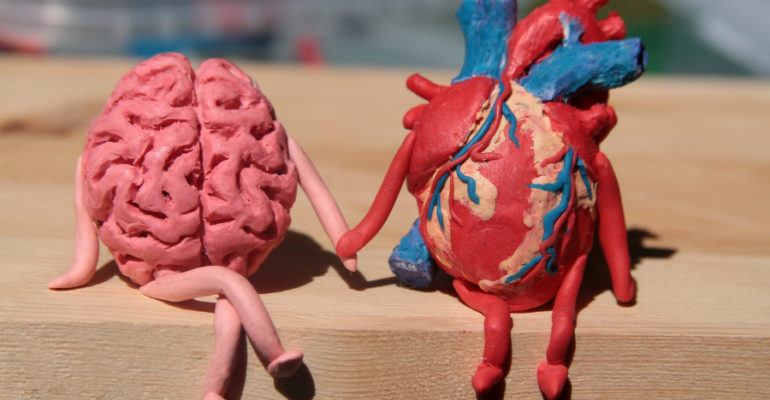A Joyful Heart is Good Medicine
“A JOYFUL HEART is GOOD MEDICINE, but a broken spirit dries up the bones,” said King Solomon in his ancient writings known as the Proverbs. It is said that King Solomon was the wisest man who ever lived, and in his Proverbs he shares this wisdom with anyone who will listen. These beloved writings have guided people across the globe for more than two millennia and show readers how to live in harmony with God and man.
Fast forward to the 21st century. With all the advances in science, technology and communications, I wonder what King Solomon would say about a joyful heart today. I bet he would have some interesting discussions with the scientists who’ve studied the biochemistry of emotions and how they affect humans’ physical states of either health and wellbeing or sickness and disease.
In the interest of ending on a high note, let’s discuss the disease state first. The biochemistry of disease is multi-faceted to say the least. Scientists and scholars have filled volumes describing how factors such as genetics, epigenetics, hormone function and nutritional status influence the disease process and how our emotions affect these systems. That being said, I’m going to keep it simple.
You get the gist. Science has proven that King Solomon was right. A broken spirit literally makes us shrivel from the inside out. Thankfully the opposite is also true. Modern science has discovered and explained the physical benefits of happiness, as well.
- The experience of joyful emotions promotes the release of endorphins,(4) which are the body’s natural pain relievers, as well as oxytocin, (5) which is aptly called “the love hormone.” It is believed that these and other related chemicals have the power to upregulate body function at the cellular level. (6)
- A scientific study published in 2013 showed how participants benefitted from a loving-kindness meditation practice as opposed to a control group that was “wait-listed” for participation. What researchers found was that the intervention group experienced an increased sense of social connection, resulting positive emotions, and better physical health, as measured by an “index of vagal tone.” (7)
- Another study, published in the Springer Journal of Diabetes & Metabolic Disorders,(8) demonstrated that an increased level of happiness achieved through mindfulness training was linked to a significant positive improvement in blood glucose levels in the Intervention group versus the control group. A host of other health benefits was documented as well.
The evidence is astounding and the science is fascinating. The question that remains is: how can a person increase his or her happiness in such a way as to reap the health benefits described above? There are likely as many strategies to achieve greater happiness as there are benefits conferred by it. Here’s a short list to get started:
- Decide to focus on blessings more than problems
- Become the “watcher of your thoughts,” replace crappy with happy
- Begin or deepen a mindfulness practice
- Read, journal or pray
- Commit to daily exercise – incorporate movement that you enjoy
- Eat a nourishing diet that feeds the microbiome (they produce happiness chemicals!)
- Make social connection a priority and let people know how much you appreciate them
- Play with a pet
- Spend time outdoors
So many thanks to King Solomon for being so wise and instructing multitudes throughout the centuries that didn’t have the advantage of modern scientific knowledge. It’s a huge privilege to live in the 21st century when we can reap the benefits of both.
Want help finding more "joyful" in your life?
References:
- Negative Emotions Can Increase the Risk of Heart Disease | Psychology Today
- Your Gut Microbiome and Anxiety: What’s the Connection? – Chris Kresser
- How Emotional Stress Causes Leaky Gut Aine-Marie.com Emotion Stress Leaky Gut
- Endorphin Definition & Meaning – Merriam-Webster
- Oxytocin Definition & Meaning – Merriam-Webster
- How Your Emotions Affect Your Health (powerofpositivity.com)
- How Positive Emotions Build Physical Health: Perceived Positive Social Connections Account for the Upward Spiral Between Positive Emotions and Vagal Tone – Bethany E. Kok, Kimberly A. Coffey, Michael A. Cohn, Lahnna I. Catalino, Tanya Vacharkulksemsuk, Sara B. Algoe, Mary Brantley, Barbara L. Fredrickson, 2013 (sagepub.com)
- The effects of mindfulness training on the level of happiness and blood sugar in diabetes patients – PMC (nih.gov)
Related Posts
Where Change Begins
Say Goodbye to Negativity and Hello to Freedom
Hack Your Habits with the Stages of Change

Start Feeling Better Now!
Choosing a path of greater peace and health is just one decision away. Sign up to receive your complimentary Guide, Overcoming Limiting Beliefs.
Popular posts
Popular tags






